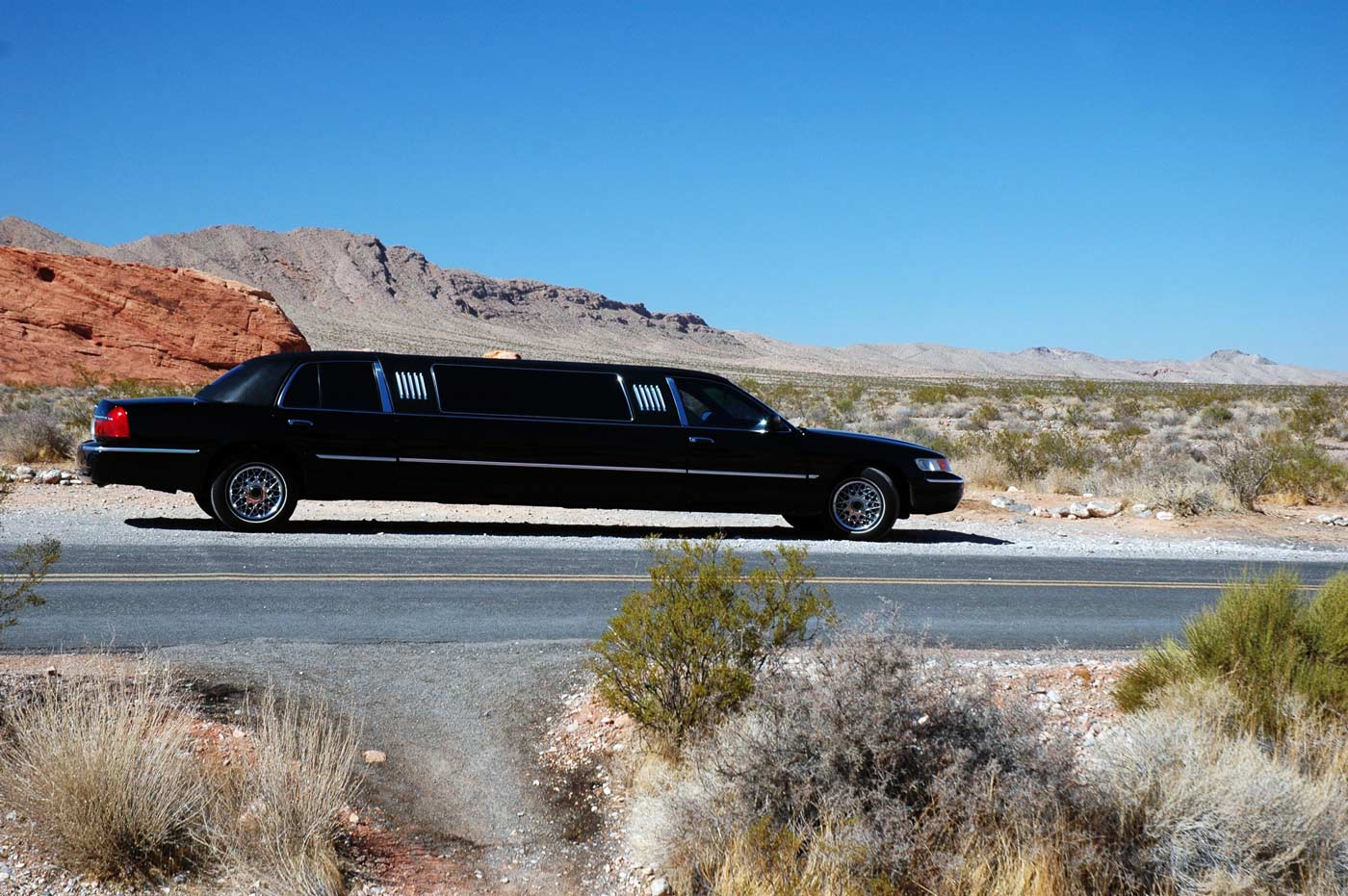Running a limousine service isn’t exactly low risk—there’s always the possibility of accidents, passenger injuries, or even lawsuits that can get expensive fast. Limousine insurance is designed to shield your business, drivers, vehicles, and passengers from these headaches with the right policy mix. Without decent coverage, one bad incident could spell serious financial trouble.
What you need really depends on how big your operation is, how many cars you’ve got, and the services you offer. Policies might include liability, commercial auto, and sometimes more specialized stuff like workers’ comp or even cyber insurance. Companies like Progressive and State Farm have options built for all sorts of limo businesses.
Costs? They’re all over the place. A solo driver pays a lot less than a company with a bunch of stretch limos. Where you operate, your driving record, and the kind of vehicles you run all matter. Knowing which policies are must-haves and what they might run you can help you make smarter choices when it comes to protecting your business.
Introductions
- Limousine insurance covers vehicles, passengers, and business risks.
- Costs depend on fleet size, location, and driving history.
- Comparing providers helps find the best coverage and price.
What Is Limo Insurance?
Limousine insurance falls under livery coverage, meant for vehicles that move passengers for a fee. It helps shield limo companies and their drivers from money problems linked to accidents, injuries, or property damage while providing upscale transport.
Key Features of Commercial Auto Limo Insurance
Typical limo coverage includes auto liability—that’s what pays for injury or property damage if you’re in an accident. Most policies also throw in physical damage protection, so if your limo gets banged up, stolen, or vandalized, you’re not stuck with the bill.
Other common add-ons:
- Personal Injury Protection (PIP)
- Uninsured and Underinsured Motorist Coverage
- Medical Payments coverage
Some insurers, like Lancer Insurance, go all the way up to $5 million in liability—probably smart, considering how pricey these cars are and how many people they can carry.
If you’ve got a garage or office, general liability and garage liability might be worth adding. They cover your business property and parking areas. There’s usually a bit of flexibility with deductibles and coverage, so you can tailor things to your needs and budget.
Why Limousine Services Need Specialized Coverage
Limo services just have more at stake than your average car. You’re hauling groups, often in high-end vehicles, so the risk (and potential payout) is higher. Regular commercial auto insurance usually doesn’t cut it.
Specialized limo insurance makes sure everyone—drivers and passengers—has financial backup if something goes wrong. Plus, it keeps you on the right side of state and local rules that require livery coverage for for-hire vehicles.
According to Progressive Commercial, limousine insurance is built specifically for passenger transport, not just any business car. That kind of focus is essential if you want to keep your business running smoothly and safely.
Save On Your Limo Insurance
Compare & Save On Coverage Online
Essential Insurance Policies for Limousines

Limousine operators juggle risks tied to passengers, drivers, vehicles, and business property. The right insurance keeps you from taking a big financial hit from accidents or claims that can crop up in daily operations.
Commercial Auto Insurance Requirements
Commercial auto insurance is the backbone for limo businesses—it’s required in most places, and it’s what pays for damages if your driver causes an accident. You’ll usually see liability insurance for bodily injury and property damage, which covers you if someone gets hurt or something gets wrecked.
Most insurers throw in physical damage coverage to pay for repairs if your limo is damaged in a crash, stolen, or vandalized. That’s a big deal with high-end vehicles. Some policies also offer uninsured/underinsured motorist coverage for those times when another driver’s insurance just isn’t enough.
What you pay depends on fleet size, vehicle type, and your driving history. Companies like Progressive, State Farm, and Geico have policies tailored for limo operators, sometimes with discounts or flexible coverage. Keeping your insurance up to date isn’t just about legal compliance—it’s about protecting your reputation and bottom line.
General Liability Insurance for Limousine Businesses
General liability covers you for stuff that isn’t directly tied to driving. If a customer slips on your property, this pays for their medical bills or your legal defense. It also helps if there’s third-party property damage during regular business activities.
This kind of business insurance is a must if you’ve got offices, garages, or waiting areas where clients might show up. Lots of providers bundle general liability with commercial auto, making things simpler and sometimes cheaper.
Insurers like Insureon call general liability a basic need for limo services. Without it, a single lawsuit could be a huge setback. Carrying this coverage shows your clients (and partners) that you’re serious about running a professional, responsible business.
Workers’ Compensation Insurance for Chauffeurs
Workers’ comp protects your chauffeurs if they get hurt on the job—whether it’s a driving accident, lifting luggage, or slipping as they help a passenger. It usually covers medical bills, lost wages, and rehab.
Most states require limo businesses to have workers’ comp, even if you’ve only got one driver. It protects both you and your employee if someone gets injured. Skip it, and you might face fines, lawsuits, or have to pay medical costs out of pocket.
Some providers like stress that workers’ comp is essential for limo operators. It’s not just about legal compliance—it shows you care about your drivers and helps with retention. Plus, it cuts down on your own risk.
Additional Coverage Options
Basic auto liability isn’t always enough for limo businesses. Extra coverage can fill gaps, protect against employee claims, and make sure everyone’s taken care of if something goes sideways.
Underinsured and Uninsured Motorist Coverage
If your limo gets hit by someone without insurance, you could end up footing the bill for repairs and injuries. Underinsured and uninsured motorist coverage steps in to cover those costs when the other driver can’t.
This is especially useful in places with lots of uninsured drivers. It protects your vehicle and your passengers, so you’re not left scrambling to pay for expensive repairs or medical bills.
Plenty of insurers, like those in limousine insurance coverage guides, recommend this option because it keeps your business steady after an accident. Without it, one crash could be a serious financial blow.
Medical Payments Coverage
Medical payments coverage pays for injuries to passengers or drivers after an accident, no matter who was at fault. For limo services, this is pretty important—you’re often carrying several people at a time.
It can cover hospital stays, ambulance rides, even rehab. That way, passengers get help right away, instead of waiting for insurance companies to argue about fault.
From a business standpoint, this also builds trust with clients. Passengers know they’re covered if something happens. Many insurers, like those with limo insurance packages, include this as part of a bigger policy.
Professional Liability Insurance
Professional liability insurance covers you for mistakes in your service—not just accidents on the road. Think scheduling errors, not delivering what you promised, or clients unhappy with how things were handled.
Say you miss a big event and the client decides to sue. This policy can help cover legal fees or settlements.
This is extra important if you handle VIPs or corporate accounts. A small slip-up can turn into a pricey claim. Having professional liability means you’re protected beyond just physical accidents.
Employment Practices Liability Insurance
Employment practices liability insurance (EPLI) covers you if employees make claims about things like wrongful termination, harassment, or discrimination. Even if the claims don’t hold up, legal costs can pile up fast.
EPLI pays for attorney fees, settlements, and court judgments. If you have several drivers or staff, this coverage can really help you avoid surprise costs from workplace disputes.
Some policies even cover employee benefits disputes—if workers claim you mishandled their benefits. As mentioned in coverage guides for limousine fleets, many insurers push EPLI once your business starts growing and hiring more people.
It’s one more way to protect your company and your team for the long haul.
How Much Does It Cost to Insure a Limousine?
There’s no single answer, but most limo businesses shell out somewhere between $5,000 and $10,000 per vehicle per year. Sometimes, it goes up to $12,000, depending on what you need and your risk profile.
Insurers look at a bunch of stuff: make, model, age of the limo, whether it’s a stretch, your business location, and your accident history all factor in.
Your policy details matter too. Higher liability limits and lower deductibles mean better protection, but you’ll pay more. If you’re confident in your drivers, bumping up the deductible can save you some cash.
Here’s a rough breakdown of annual coverage costs:
| Coverage Type | Average Cost Range |
|---|---|
| Primary Liability | $3,500 – $7,000 |
| General Liability | $1,500 – $2,500 |
| Physical Damage | $500 – $3,500 |
| Workers’ Compensation | $2,000 – $5,000 |
| Medical Payments | $1,000 – $2,000 |
Smaller operations with just one car can often pay less than big fleets that need more coverage, like workers’ comp or garage liability.
Where you’re based matters too. Operators in states like New Jersey usually face higher premiums than those in places like North Carolina.
Some companies say their small-operator clients pay as little as $57 to $99 a month, depending on the vehicles, services, and driver records, per General Liability Insure.
Bottom line: fleet size, services, and your business’s experience all play into what you’ll actually pay.
Factors Influencing Limousine Insurance Cost
Insurance pricing for limousine services is a bit of a moving target, honestly. It’s shaped by fleet size, the kind of vehicles you’re running, your drivers’ records, and the coverage you pick. All these pieces come together to determine your premiums and how much risk an insurer thinks they’re taking on.
Fleet Size and Vehicle Types
If you’re running just one limo, you’ll get a different quote than if you’ve got a whole line of them. More vehicles usually means a bigger bill, but sometimes insurance companies offer fleet discounts that can soften the blow per car.
The actual type of limo matters, too. Stretch limos and those big executive coaches? They usually need more liability coverage because—well, more passengers, more chances for something to go wrong. On the other hand, luxury sedans and SUVs might seem like they’d be cheaper, but their pricey parts can make repairs expensive if something happens.
Age plays a part. Newer limos cost more to insure, mostly because they’re worth more if totaled. Older ones might be cheaper, unless they’re missing up-to-date safety gear, which could bump up your rates. Honestly, juggling your fleet’s size, vehicle choices, and keeping up with maintenance can really change your overall insurance cost.
Driver Records and Experience
Who’s behind the wheel? That’s huge. Insurers dig into driving records, past accidents, and how long each chauffeur’s been at it. Companies with drivers who have clean records usually get a better deal, while a history of violations or fender-benders can send rates climbing.
Experienced, licensed drivers are less risky in the eyes of most insurers. Some even want to see proof of defensive driving courses or extra training before they’ll write a policy.
For limo operators, hiring and hanging on to good drivers isn’t just about safety—it’s a real money-saver. One serious accident, especially with injuries, can hike your premiums up fast.
Coverage Limits and Deductibles
Your coverage choices are another biggie. Go for higher liability limits, and you’ll pay more, but you’ll sleep better if something major happens. A lot of operators pick limits above what the state requires just to be safe.
Deductibles are the trade-off. Bump up your deductible and your regular payments drop, but you’ll pay more out of pocket if you ever need to file a claim. It’s all about how much risk you’re willing to shoulder yourself.
Add-ons like collision, comprehensive, and extra passenger liability protection will push up your costs, but sometimes they’re just necessary—especially if you’ve got VIP clients. Picking the right mix of limits and deductibles is a balancing act between keeping costs manageable and not leaving yourself exposed.
How Can You Save On Limo Premiums?

Insurers want a lot of details before they’ll give you a real quote. Things like vehicle values, fleet size, and how you use your limos all come into play. Shopping around is worth it—there’s no one-size-fits-all policy, and comparing can help you find that sweet spot between price and protection.
Information Needed for Accurate Quotes
When you’re after limousine insurance quotes, be ready to share nitty-gritty details about your business. They’ll ask for the year, make, model, and how many folks each vehicle can carry. Unsurprisingly, pricier vehicles mean higher premiums.
Driver info is just as important. Clean records, lots of experience, and a solid training background can help keep your rates down.
How you actually run your business matters, too. Insurers want to know how often your limos are on the road, typical mileage, and whether you mostly do events, corporate gigs, or airport runs. The more you’re out there, especially with lots of different passengers, the more risk they see—and the higher your rates might be.
Coverage needs are a factor. Liability-only policies cost less, but if you want the works—collision, theft, passenger liability—it’ll add up. Being upfront about what you need helps you get a quote that’s actually accurate for your business.
Limousine Insurance Companies
Insurance companies aren’t all the same, so comparing is just smart. For instance, Liberty Mutual is known for broad coverage and some handy fleet tools, while State Farm leans on its reputation for reliable service and roadside help.
If you’re watching your budget, Geico tends to start rates around $155 a month, which can be a lifesaver for smaller outfits. Progressive Commercial is a solid pick for those who stick around, thanks to loyalty perks.
Here’s a quick comparison:
| Company | Strengths | Example Monthly Rate |
|---|---|---|
| Liberty Mutual | Comprehensive coverage | $420 |
| State Farm | Reliable service | $160 |
| Geico | Affordable rates | $155 |
| Progressive Commercial | Loyalty rewards | $375 |
Taking the time to weigh limousine insurance providers really does pay off if you want to match your needs to your budget.
How To Save On Your Limo Insurance Policy
+ Bundle coverage with one insurer
+ Add safety tech like cameras and GPS
+ Keep driving records clean across your team
+ Pick higher deductibles if you can swing it
+ Have your drivers complete training for potential discounts

Best Practices for Managing Commercial Insurance
Staying on top of your insurance isn’t just about ticking boxes—it’s about keeping your business safe, your passengers protected, and making sure you’re following the law. The right approach also makes sure your coverage actually fits your risks and how you operate.
Risk Management Strategies
Limo operators have a pretty unique risk profile: passenger injuries, accidents, property damage—the works. A smart limousine insurance coverage setup usually includes commercial auto liability, coverage for physical damage, and general liability insurance. These are what keep you afloat if you’re hit with lawsuits, repair bills, or medical costs.
It can help to lay out a risk assessment table to see where you’re most exposed:
| Risk Type | Example Scenario | Coverage Needed |
|---|---|---|
| Passenger Injury | Slip entering vehicle | General Liability |
| Vehicle Accident | Collision with another car | Commercial Auto Liability |
| Data Breach | Client info stolen | Cyber Liability |
Having solid safety programs—like regular driver training, background checks, and routine vehicle inspections—can really cut down on claims.
Some operators roll the dice with higher deductibles to keep premiums down, but that only works if you’re ready to cover bigger expenses if something happens. It’s a gamble, honestly.
Maintaining Compliance with Legal Requirements
Every limo company has to carry enough business insurance to meet the state’s licensing demands. Most places require at least basic auto liability, so you’re covered if passengers or others get hurt.
It’s smart to review your policy limits at least once a year. If you add more cars or start offering new services—like airport runs—you might need to up your coverage.
Some states or regulators will want proof of workers’ comp insurance for your drivers, too. That keeps them protected if they get hurt on the job.
To keep things from falling through the cracks, set calendar reminders for renewals and let your insurer know about any business changes ASAP. Having a licensed agent in your corner can make sure your insurance keeps pace with both the law and your real-world risks.
Frequently Asked Questions
Limousine insurance is a bit of a puzzle—it hinges on vehicle type, driver history, and all those state rules. Operators have to juggle legal requirements and picking coverage that won’t break the bank.
What factors influence the cost of limousine insurance per month?
Monthly premiums can fall anywhere from $400 to $850 per vehicle. The price is tied to the kind of limo, where you’re based, your drivers’ records, and the liability limits you choose. Big rides like party buses usually cost more than sedans.
What are the minimum insurance requirements for limousine services?
Every limo service needs commercial auto liability coverage. Most states tack on requirements for general liability, physical damage, and workers’ comp if you’ve got employees. States like New Jersey and California have even stricter minimums because of higher accident risks and traffic.
Which companies offer the best insurance policies for limousines?
Specialists like Progressive Commercial and Lancer Insurance are popular for their flexible coverage. Brokers such as Tivly can help you shop around and compare rates that fit your needs and state rules.
Is it possible to obtain limousine insurance for personal use?
Sometimes, yes. A few insurers will cover limos for private use, but it’s not the norm. Most policies are set up for commercial use, so if you’re looking for personal coverage, you might need to go through a specialty broker.
What are the options for affordable insurance for limousine operators?
To keep costs down, it helps to compare multiple limo insurance quotes, bundle your policies, and hire drivers with spotless records. Adding GPS units or dashcams can sometimes earn you a discount. Opting for higher deductibles will lower your monthly payments, but only if you’re comfortable with the risk of higher out-of-pocket costs.
How do coverage needs differ between personal and commercial limousine insurance?
Personal insurance is really just for when you’re using a limo privately—think basic liability and property damage, nothing too wild. But once you start hauling paying passengers, things get complicated fast. Commercial policies have to step up with bigger liability limits, workers’ comp, and sometimes even quirky extras like party bus or black car coverage. It’s a whole different ballgame when you’re running a business.
Our Insurance
Marketplace
in Numbers
2019
Year Founded
1M+
Policies Issued
24%
Annual Savings

Compare Quotes
Always get quotes from a few providers.
Costs vary a lot depending on what you need and your business size.Don’t be shy about asking if they know your state’s regulations.
Every state’s got its own rules, and you don’t want to find out after the fact that you’re missing something.

24/7 Support
Look for a provider that actually focuses on commercial transportation.
Specialists in transportation insurance understand the weird quirks of party bus risks.Standard auto policies just don’t cut it here.
Make sure you’re getting coverage built for passenger entertainment businesses.

Annual Review
Review your insurance every year—or sooner if something big changes. Adding buses, new locations, or expanding services all mean it’s time to check your coverage.
If you swap out vehicles or boost your passenger count, update your liability limits so you’re not underinsured.
Frequently asked questions
Party bus insurance requirements really do depend on the state. Some places want higher liability limits, and the size of your bus (and how many folks it carries) is a big factor in your premium. Essential coverage usually means commercial auto, general liability, and some sort of passenger protection.


